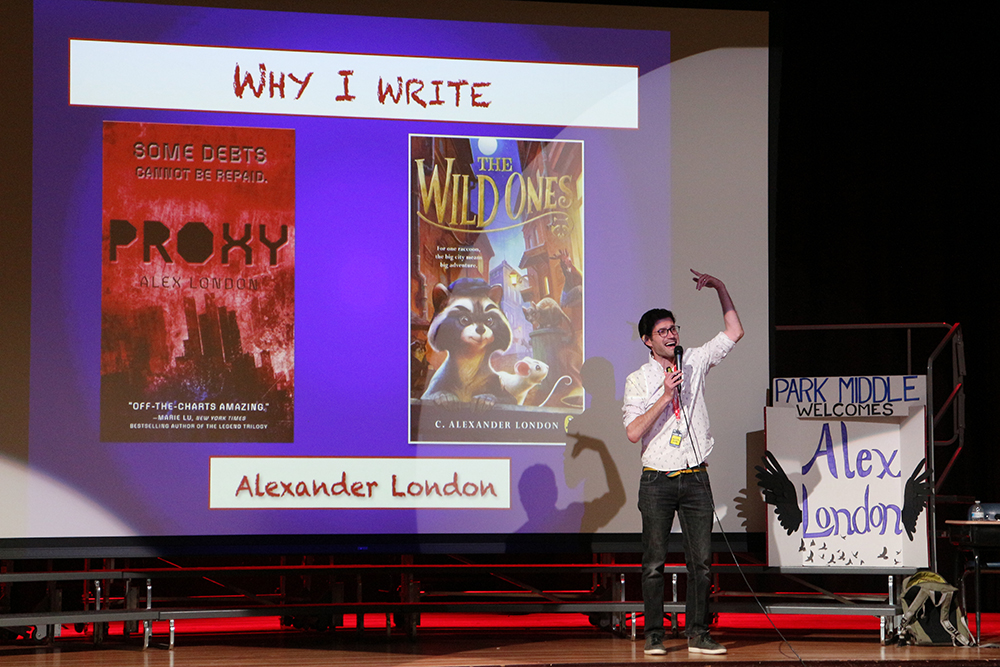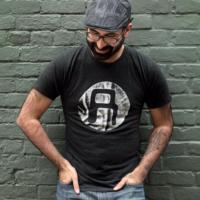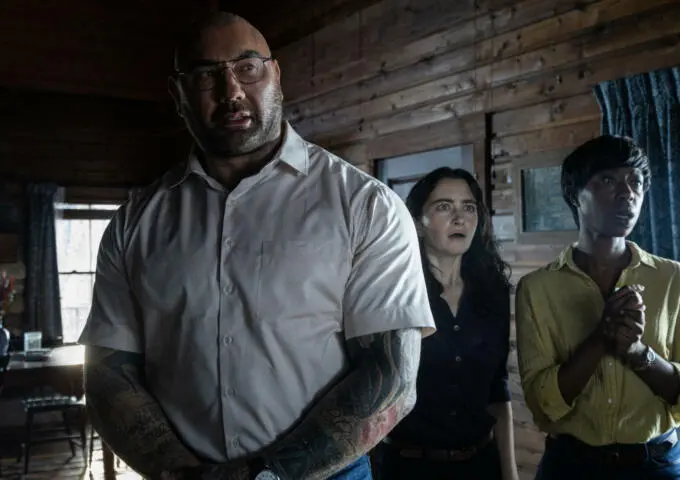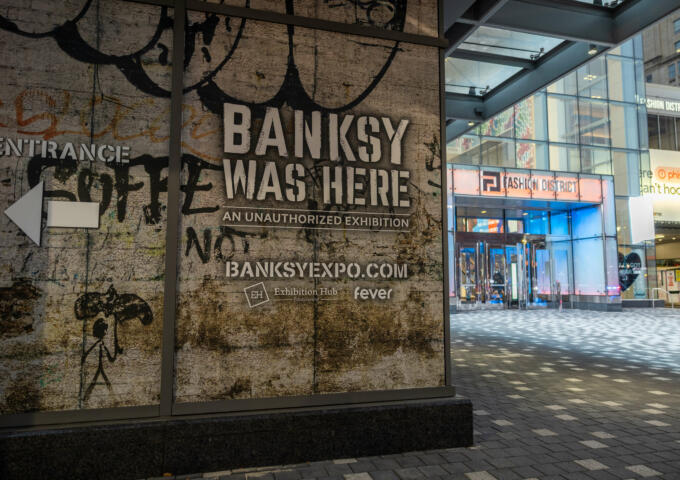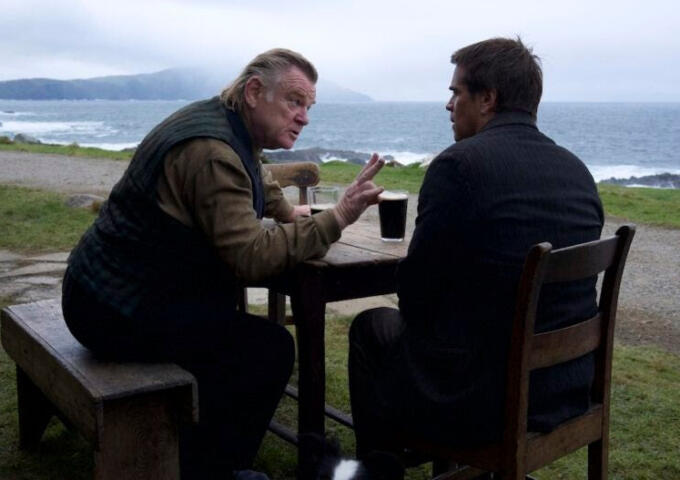The first time I met Alex London, in-person, it was a harried hello near the Pennsylvania Convention Center, sometime in 2019, as we hurried towards our respective conference events. The “before times” as a lot of writer friends tend to say, when book convention and publishing conferences were still all over the place, before 2020 shut them all down. We were standing across the street from the Wawa, talking about his somewhat recent move to the city, how I’d just moved back, and how we’d have to get together soon.
While that was the first time I saw him in person, it was far from the first time I’d gotten to know him. Because where I truly first met Alex London, was through his astonishingly beautiful books.
I couldn’t believe our city was going to be lucky enough to have his voice here. And that theme is something I hope to be an ongoing one, as I introduce you Philadelphia Weekly readers to more of the authors who call this city home, that you might not be aware of.
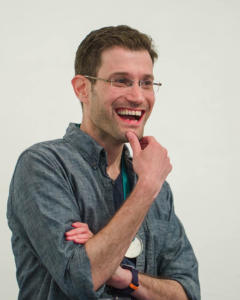
London’s been publishing books for children for well over a decade, from his fantasy-filled animal adventures in The Wild Ones to the author-jumping, genre-spanning 39 Clues series, featuring titles written by household names like Rick Riordan, Gordon Korman, and Linda Sue Park. But it was through his breakthrough, Young Adult debut, the critically acclaimed Proxy (Philomel Books, 2013), that I fell in love with his words.
The dystopian Young Adult sci-fi novel racked up numerous accolades and found itself on numerous reading lists. And with good cause. Focusing on a teen who lives life as a Proxy, a kid assigned to take the punishments of the wealthy, whose life is not his own, the sweeping sci-fi thrill ride is an astonishing exploration of empathy. What happens when capitalism is completely unhinged and goes unchecked? When every possible thing is available for purchase? It’s a question we ask ourselves now, and we aren’t in some far-flung future. Not yet anyway.
And that’s the beauty of challenging, dystopian books like Proxy. To hold that mirror up and ask the scary questions we don’t necessarily want answer for… but need to face.
A glimpse at London’s catalog of recent books showcases a lot of that. Using sci-fi and fantasy to dig into big important messages surrounding society, sexuality, identity, he gives readers the opportunity to sit with those questions, through mirrors that reflect themselves, and windows that allow readers to understand others.
An Alex London novel is a masterclass in empathy and understanding.
But he didn’t stop there with his Proxy duology. The last few years, Alex London has been busy. His critically acclaimed Skybound Saga published over the last three years with FSG, kicking off with the outstanding Black Wings Beating (2018), and followed up with Red Skies Falling (2019) and Gold Wings Rising (2020). Set in an astonishingly complex yet accessible fantasy world where falconry is a huge part of the lives of everyday people, it’s a roaring, gorgeous series that is completely unputdownable.
His most recent project is the Middle Grade series Battle Dragons, set in a world full where dragons just live with us. They burn our garbage, work as taxi services. The second novel in this series hits in August, and I was lucky enough to talk with Alex about his books, his writing life, and how much he loves being in Philadelphia.
PW: You’ve written a few series. Your duology, Proxy. The Skybound trilogy which concluded last year. And now, Battle Dragons. What draws you to writing stories that take up multiple books? What’s the challenge there?
London: As a young reader, I loved series books. Brian Jacques’ Redwall were the books that made me a reader. There was a comfort in getting to know characters and worlds over multiple books, returning to them over and over in different circumstances in my life and in the characters’ lives. I think series appeal to young readers because of that sense of safety, even in books where no one in the story is safe, you can trust the writer to take you through the tale safely because you’ve traveled with them before.
As a writer, I love the space series writing gives me to create expansive worlds and take my time exploring them. I also spend a good deal of time with the imaginary people (and animals) I create, and it seems sad to just abandon them after only one book. I like that in series writing I get to spend years with these people (and dragons!) that I create, watching them grow and change as their stories get bigger and bigger. Series writing gives me enough room that I rarely have to abandon ideas I like; I can just save them for later use in the next books.
The biggest challenge is remembering what color eyes everyone has from book to book. I’m not a terribly organized person. I should probably start a spreadsheet.
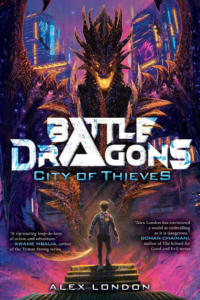
London: City of Speed picks up a few weeks after book one left off, but tells its own story, this time centered on illegal dragon racing! So there will be high stakes dragon races, both professional and illegal street races; there will be new and wonderful breeds of dragons, as well as new friends and new enemies for Abel and his friends. There will also be more dragon drag queens, because why not? It’s a high stakes, high speed, high flying romp that I hope readers race to devour!
See what I did there? Race to devour?
PW: Alex.
London: Because dragon racing…
PW: A lot of your novels dig into powerful themes surrounding identity and complex relationships, and it’s done through sci-fi and fantasy lenses. What about the fantastical and far-flung futures, make this kind of storytelling work so well for you?
London: I think all writing is world building, whether you’re writing a contemporary romance about competing cheesesteak shops in Philadelphia today or a book about futuristic dragon riding gangsters. Authors choose what details to include and what to leave out through a set of beliefs about what their readers will and won’t assume. In fantasy and sci-fi, you have fewer reader assumptions to work with, because you’re creating their world, but at the end of the day they’ll follow you into any world you make as long as the people in it and their interactions feel authentic.
So for me, invented worlds are a fun way to explore and amplify dynamics that exist in our world. For example, all middle schoolers feel powerless sometimes, feel uncertain or anxious, and all of them explore the limits and boundaries of their own agency. In Battle Dragons I write about those feelings, but I give my middle schoolers dragons. What if you were exploring the limits of your own power on the back of a dragon? I truly believe that power doesn’t change people, it reveals them, and what better way to reveal a character that giving them the ultimate power: a ten-ton dragon!
PW: You have a picture book coming out in a few years (2024!), and it’s your first one in a while after years of novels. What can you tell us about it? And what drew you back to picture books?
London: My 3-year-old loves picture books and I wanted write one I could read to her while she’s still young. That was the motivation, but the execution of what became Still Life was a whole different story. It took a lot of drafts and revision and two years to sell to a publisher! I have never worked so hard on a book, which is only a few hundred words long! I feel very lucky, however, to have landed with an amazing editor who paired my text with the absolutely legendary and brilliant artist Paul Zelinsky. I’ve loved his work since I was kid, so I’m just gobsmacked he’s bringing my story to life.
PW: Once upon a time, before the novels, you were a journalist, reporting in conflict zones and covering major crises. Does that part of your writing life ever find its way into your current work?
London: Well, writing nonfiction on any topic is great way to learn how to write fiction. If you can render reality into words, you can render an imagined reality into words. As for what I covered, it does indeed. I wrote mostly about young people impacted by armed conflict, from refugees to child soldiers. In that work, I saw the amazing capacities young people have to transform their world—for good and ill—and to survive, with wit and whimsy and boundless humanity in the terrible circumstances created by adults.
I began writing for young people with the knowledge that young people are worthy protagonists in their own lives and in a society’s transformation. The kids and teens I met all over the world were brave, silly, dangerous, impulsive, considerate, loving, reckless and wise: all the things we imagine our invented heroes to be. Young people already have the bravery and brilliance I write about; I just add the dragons.
PW: Now this is the Philly Weekly, so I have to ask… you’ve lived in a few places. Baltimore. New York City. Why Philadelphia?
London: We moved here in 2016 to start family, not actually knowing a lot about it! We knew we wanted to live somewhere more affordable than Brooklyn, somewhere still on the East Coast, somewhere with a vibrant queer community, and a place with a sense of history. Also, my husband, a teacher, got offered a job here, which made the decision easier! I knew Philly’s reputation via battery attacks on Santa Claus and deep feelings around sandwiches, and I had some familiarity with Wawa already. We had some friends who lived here and who made a strong case for it before we moved, and then my husband fell in love with the Mt Airy neighborhood after our first visit. After a few more, we realized this was the place we wanted to be. Oh, and I needed a good independent bookstore or ten, which Philly definitely has. It was more vibes than anything, though we also needed a place with good pizza, and Philly definitely fits the bill. So, yeah…we moved here because of a job, and also books, gays, vibes, and pizza.
PW: Where do you go to be inspired?
London: Well, I used to love writing in coffee shops all over the city, but the pandemic and having a small child kind of stopped that. Now, I’ll stroll in Carpenter’s Woods to clear my head sometimes, but honestly, just heading to Center City or South Philly and wandering is still my favorite way to find inspiration. I love walking in cities, taking in neighborhoods I don’t live in as they go about their business.
I’ve read about ‘forest baths’ where people soak in the wilderness to cleanse their spirits or whatever…I take concrete baths. I like to soak in the feel of the street and it always fuels my imagination. I guess that’s why the city is such a huge character in Battle Dragons. It’s an imaginary place, filled with dragons. It’s not Philly nor anywhere else, but it is a city of neighborhoods and of people living in very close quarters trying their best to thrive, in sometimes challenging circumstances. Philly is one hell of an inspiration for that.
PW: What have you read and loved lately?
London: We’ve got a three-year-old, so a lot of my world is picture books these days! I’m a big fan of Isaac Fitzgerald’s How to Be a Pirate and my daughter can’t get enough of Dragons Love Tacos (which makes my dragon loving heart glad). As to actual grown-up reading, for some reason, the past year has been all about spies and horror for me, so I’ve been devouring everything the historian of espionage Ben McIntyre has written, most recently Agent Sonya. I’ve also escaped into the Slough House series by Mick Herron. And I’ve been loving just about everything horror writer Stephen Graham Jones has done. Just finished Night of the Mannequins, which is creepy and weird in all the best ways. In the YA space, I am extremely excited for my friend, and local author, Katherine Locke’s This Rebel Heart.
You can learn more about Alex London via his official website, www.calexanderlondon.com, and watch out for the next book in his Battle Dragons series, City of Speed, out with Scholastic this August.
